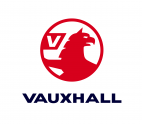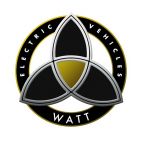
In 1958 the British Vanwall F1 team won the first World Constructors Championship Trophy. The company's founder, industrialist Tony Vandervell, had a clear ambition. he wanted to create the finest Grand Prix race team and win. He was especially focused on beating Ferrari whose red cars so often ruled the circuits of Europe.
The industrialist lent his considerable resources to creating the finest cars and hiring the best drivers. A key component was his love of engineering innovation. The Vanwall team name was created from the fusion of Vandervell and Thinwall, the globally renowned bearings business that supplied top teams like Ferrari.
Vanwall was a very special team. On the track their leader was Sir Stirling Moss, off it were team owner Tony Vandervell and manager David Yorke. In its day, Vanwall was a byword in the paddock for innovative engineering, with the Colin Chapman-designed chassis complementing the aerodynamics by Frank Costin.
Ten years perseverance went into 1958 and beating ‘those bloody red cars’. It was Britain vs Italy, Vanwall vs Ferrari, Green vs Red. The green cars won.
To celebrate the Vanwall victory and what it has meant to Britain's F1 teams we are building just six Vanwalls, Only five of the continuation cars will be offered for private sale, with the sixth car forming the core of a Vanwall Historic Racing Team. Each vehicle will be painstakingly built over thousands of hours by historic racing and vehicle restoration experts, Hall and Hall in Lincolnshire, England.
Current MD of Vanwall Group Iain Sanderson is a former world champion offshore powerboat racer, as well as being an early pioneer in electric vehicles, when he commissioned the Lightning GT electric supercar in 2008.

Established in 1903, Vauxhall is the only volume manufacturer continuously building vehicles in the UK for over 100 years. Their Ellesmere Port plant, in Cheshire, produces the sixth generation Astra 5-door hatchback and is the sole manufacturer in Europe of the Astra Sports Tourer. The plant has a headcount of 2,100 and the capacity to produce 187,000 units a year on three shifts. In 2007, Ellesmere Port became the first UK manufacturer to receive the Energy Efficiency Accreditation and in 2010 became the first European manufacturing plant to achieve the Wildlife Habitat Accreditation.
In May 2012, GM announced that it would build the next generation Astra in the UK, safeguarding the Ellesmere Port plant until at least the end of the decade. Then in November 2017, the PSA Group completed its purchase of the Vauxhall and Opel brands from GM. The latest generation Astra Hatchback and Sports Tourer remain in production at Ellesmere Port.
Vauxhall also build the 'medium-sized' van, the Vivaro, at their plant in Luton, for sale in the UK and Europe.

The Venari Group is the UK's leading manufacturer of emergency vehicles, with over 124,000 sq ft of manufacturing space accross 2 Yorkshire-based sites, employing over 120 people.
The Group encapsulates two main world-class specialist divisions: their ambulance production division, under the ‘O&H Vehicle Technology’ brand, based in Goole, East Yorkshire, is the UK’s oldest and largest ambulance factory comfortably boasting the UK’s most experienced team of ambulance builders.
Venari’s firefighting division, based at their headquarters in Brighouse, West Yorkshire, is the largest firefighting vehicle factory in England which also boasts some of the industry’s most experienced firefighting vehicle builders together with the next generation of mechanical and electrical production and design engineers.
In 2022 they built and supplied over 1,000 vehicles, and towards the end of 2022 their two sites became three when the new factory on the Ford Dagenham site was commissioned.

Watt Electric Vehicle Company
Models
WEV Coupe
Watt Electric Vehicle Company is both a manufacturer of premium electric vehicles and technology leader enabling the niche vehicle industry to go electric, thanks to its unique new EV platform. Complying with all ISO standards and meeting European Small Series Type Approval standards, Watt Electric Vehicle Company’s sophisticated modular skateboard architecture can support the low volume production of almost any EV from small passenger car to commercial vehicles.
As the motoring world rapidly accelerates towards 2030, niche manufacturers have a major challenge on their hands. New electric vehicles will require entirely new platforms – but for new start-ups and established low volume brands, the technology investment required is just too high. Watt Electric Vehicle Company enables the niche vehicle industry to go electric with PACES – a highly sophisticated off-the-shelf flexible platform that is not only cost-effective but complies with all ISO standards and European Small Series Type Approval standards.
This state-of-the-art, modular platform has been specifically designed for low volume manufacture, whether for a passenger saloon, sporty rear-wheel drive roadster or commercial vehicle, and also comes fully supported by a leading UK-based EV technology supply chain. Over the last two years, Watt Electric Vehicle Company has undergone an extensive development process with the PACES platform, which is now enabling electrification across the passenger and commercial vehicle sectors. They are based in St Columb Major in Cornwall.

Wells Motor Cars evolved from the germ of an idea in 2014, imagining a lightweight, modern sports car. Focusing on feel, sensation and pure pleasure. In many ways, the idea was the deliberate opposite of current trends, which saw cars becoming ever heavier, larger and more complicated, removing involvement and sensation with every additional kilo.
The vision was simple — to offer a car that delivered all-round enjoyment all year, providing a great driving experience for the enthusiast but also offering real practicality and enjoyable ownership for all kinds of customer. The car would be deliberately low-volume and under the radar, taking inspiration from the coach-built motor cars of the past, but without the expense. And so, Wells Motor Cars was born.
Design work commenced in 2016, led by a small team of experienced engineers and designers with wide-ranging backgrounds. Two years of intense CAD and development work followed. And the name Vertige was chosen — conveying lightness, dizziness and excitement.
Between 2018 and 2019 a succession of three prototypes of the Vertige emerged, one after the other, each hand-assembled by the growing teams of engineers and craftsmen, and many thousands of miles of testing and development work followed, on track and road.
Wells Motor Cars is committed to reinvigorating Britain’s motor manufacturing heritage, from their base in Warwickshire, in the heart of England. They are proud to have a 100% British supply chain and are now taking expressions of interest for the 2024/25 production run of the Vertige.





